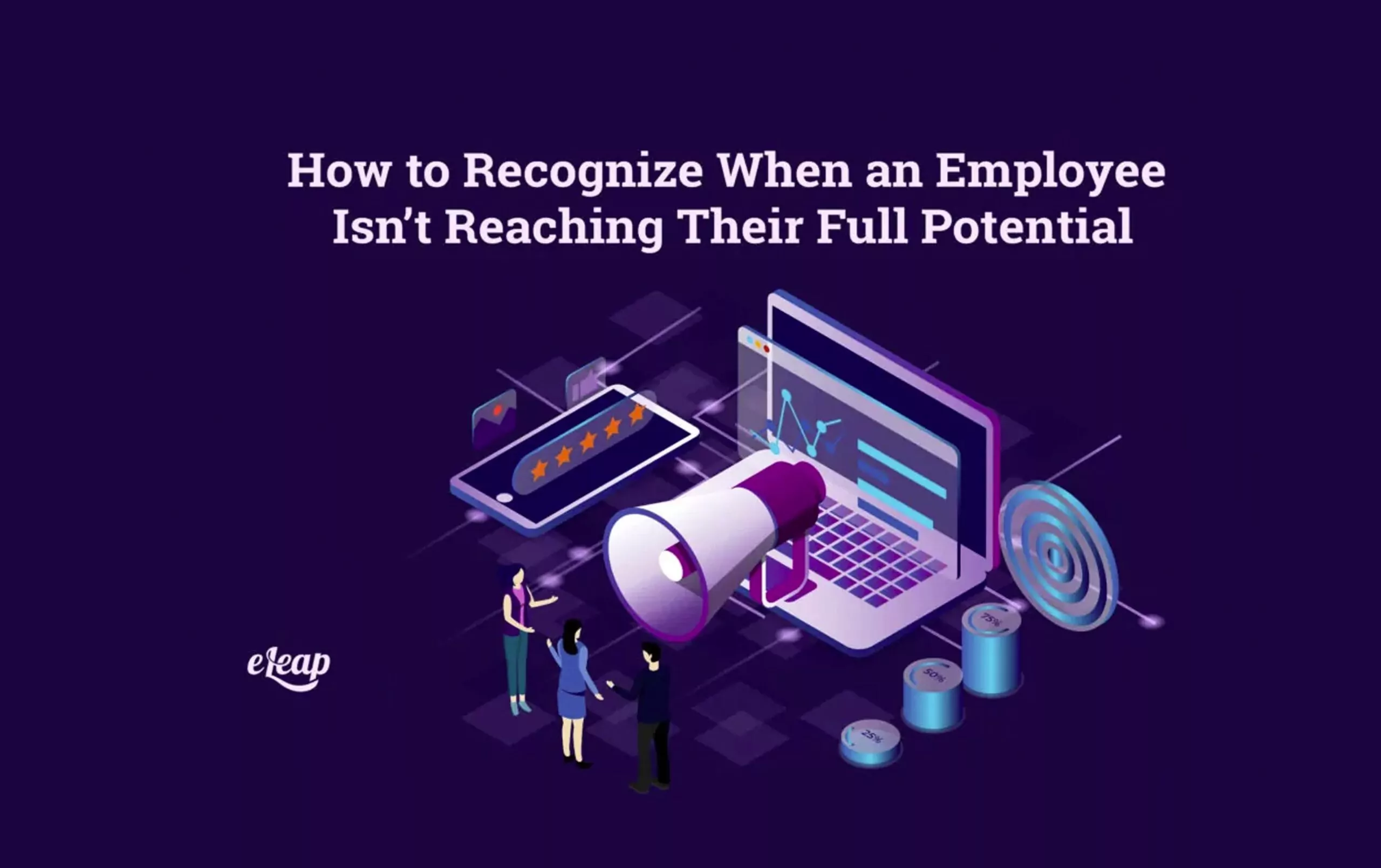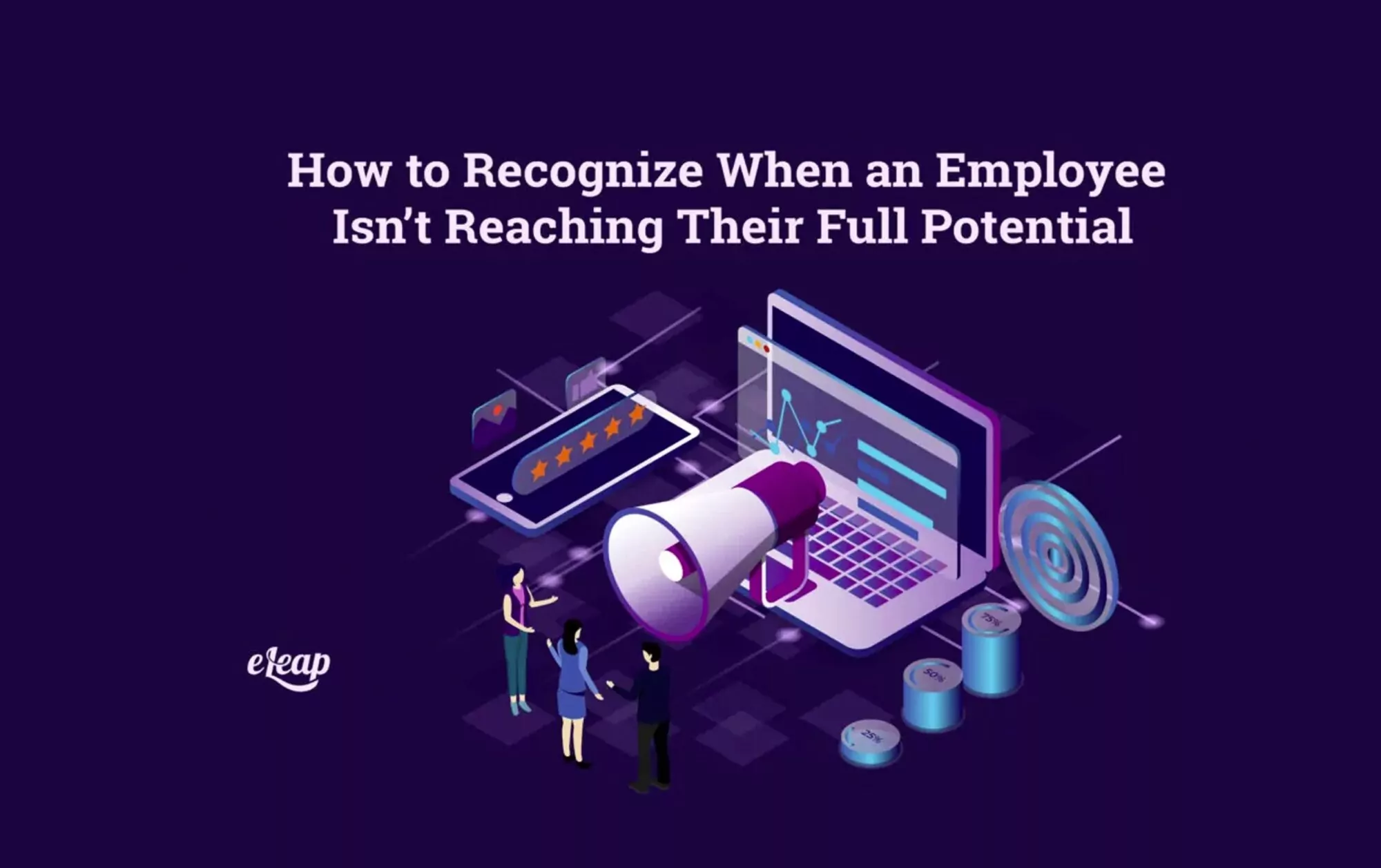How to Recognize When an Employee Isn’t Reaching Their Full Potential

As a leader, you should never settle for less than full potential when it comes to your employees. Particularly in this day and age, when younger generations value their growth within an organization so greatly, failing to encourage employees to reach their full potential can be very problematic. Explore how eLeaP®’s Performance Management Platform can simplify evaluations, boost productivity, and drive measurable results.
Employees are always being challenged to learn from their managers and develop into better roles. It’s not just good for businesses to expect the best out of their team members; it’s also good for your employees themselves. Years from now, your employees will hope to look back at their careers and realize what they have accomplished. Employers are expected to support their team’s professional development, ensuring they reach their full potential.
Younger generations, particularly Millennials and Generation Z employees, benefit hugely from this employee management approach. With slightly older employees, you can be more certain they have already built up most of the skills needed to perform their jobs. However, younger employees will still look to be molded by their leaders, developing their skills and growing within the organization.
Initially, employee growth is fairly easy to recognize. Within the first few years, it’s fairly simple to recognize how far an employee has come. The problem is this plateaus, and the longer an employee works for a company, the less care and attention is paid to their growth. Sometimes, leaders may not be able to see when a member of their team hasn’t achieved the success expected of them when they were first hired. Here, we will talk about some signs to watch out for that indicate an employee isn’t reaching their full potential. Using the eLeaP system also enables you to uncover these issues before they persist and fester. Take a free 30-day free trial of eLeaP and see how your employees start to blossom.

Failure to Meet Goals
Failure to achieve individual goals doesn’t just demonstrate a lack of potential as an employee, underperformance is also a problem. An employee can’t be expected to rise to future challenges and meet expectations if they’re unable to give their best performance today.
To that end, keeping an employee’s goals in perspective when reviewing their performance is important. Comparing their goals to the effort they’re putting in to meet them can be a valuable indicator of their performance and their potential inability to meet their full potential. If an employee is no longer striving to meet goals, what’s the issue? Why aren’t they feeling motivated?
Additionally, it’s important to consider exactly what could have gone wrong. Were their objectives that weren’t met by the whole team? Could anything have been done differently with additional resources, support, or direction? Before making any drastic decisions, look at the picture as a whole and take everything into consideration.
They’re Not Trying to Push Themselves Out of Their Comfort Zone
It’s common knowledge that in order to grow, you need to push yourself out of your comfort zone. This doesn’t just apply to personal goals but work goals as well. Of course, it’s good news if an employee is able to meet their goals without much struggle. But in the long run, how will this benefit them?
In order to reach their full potential, they need to challenge themselves. If you feel like an employee has the potential to do more and push harder, try assigning them tasks that might be a challenge and see if they rise to the occasion. Employees who don’t take advantage of such opportunities can’t progress very far. If they are presented with a challenge, and they do rise to the occasion, it can work wonders in their growth and progression. If they fail, it gives you, as a leader, greater insight into how to help them improve so that they can meet such challenges.
Failure to Share Ideas
When first starting out with an organization, new employees spend most of their time learning the ropes. As many questions as possible are asked so they learn as much as they can about the organization. As an employee progresses in their role and become more confident, however, they should share ideas rather than just listen to what others say. The ability to share an idea shows that the employee is thinking deeply, understands the organization, and wants to see improvements happen. If an employee fails to do this, it could indicate an issue.
Great ideas are often kept to oneself for a variety of reasons. It can be challenging for introverts to speak up, or some employees may feel that sharing ideas isn’t their place. But all employees should be encouraged to share their thoughts regularly, as it will help them reach their full potential.
There’s No Professional Growth
On-the-job learning is the most common method of professional development, but motivated employees should also be looking for other opportunities to fill any gaps in their skillset. These days, there’s no excuse for a lack of professional development. Why? Because obtaining knowledge and developing new skills has never been easier.
Leaders should encourage this development by making sure that employees are always reading books, checking websites, watching webinars, and doing whatever they need to do to prepare for the next phase of their careers. Assisting with employees’ professional development is also beneficial to your organization. Providing management training, mentoring programs, and continuing education benefits are excellent ways to groom the next generation of leaders and help employees grow.
Recognizing when an employee isn’t reaching their full potential is an important component of good leadership. Allowing your employees to coast can be costly to your organization. Of course, it’s good for business if employees are working to the best of their abilities. Moreover, employees who feel like they’re reaching their full potential, consistently growing, and always striving for more are much more likely to feel satisfied with their jobs. Essentially, the happiest employees are those whose leaders assist them in their journey to reaching their fullest potential.